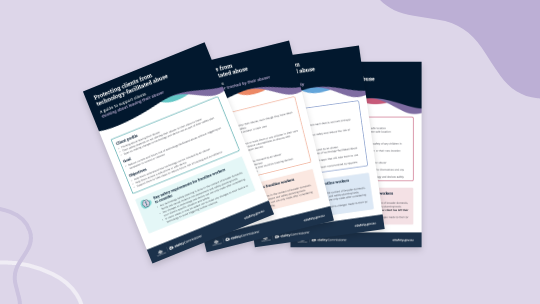
Guides for protecting clients at different stages of tech-based abuse
These guides provide practical steps to work through with clients, as part of standard safety planning. Whether a client is thinking about leaving their abuser, has left or is actively working to regain control over their online and digital security, these guides account for specific technology safety considerations for different stages of addressing tech-based abuse.
Technology audit
Undertaking this technology audit with your client can help to understand where they might be most vulnerable to digital tracking, harassment and surveillance.


